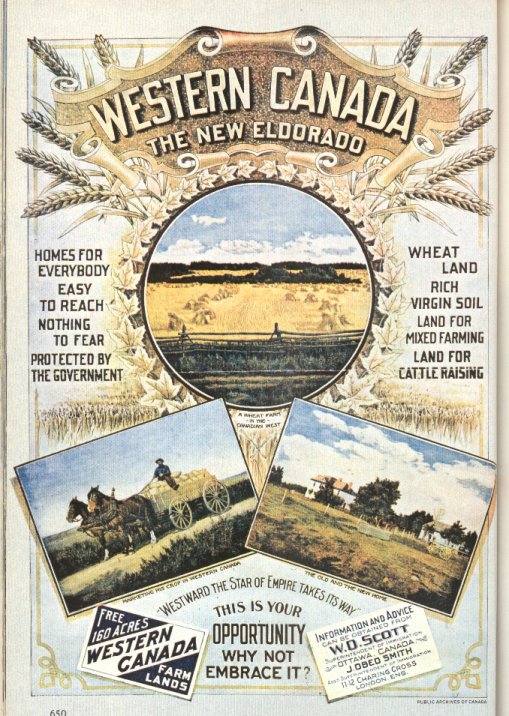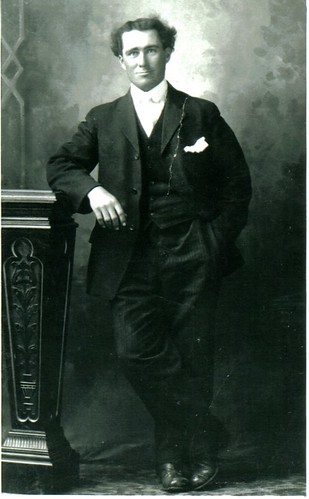 It's Friday night and I'm riding the Number 3 down Main St. to work. I'm thinking about the S.S. Lake Winnipeg and how it left Liverpool in April 1903, full of Barr Colonists.
It's Friday night and I'm riding the Number 3 down Main St. to work. I'm thinking about the S.S. Lake Winnipeg and how it left Liverpool in April 1903, full of Barr Colonists.I'm standing in the aisle, because I go to work just as most of the world is going home and the #3 eventually connects with the Main St. Skytrain station. So the bus is full when I get on at Broadway. In front of me, two kids with snowboarding gear. The taller kid's boots are slung over his snowboard bag, and everytime the bus stops, which is at least once a block, the boots swing into my gut. Not hard enough to hurt, just enough so that I know it's there. A woman laughs. I don't know if she's laughing at me or at some private joke.
I assume that all these people are going home from work. But I don't know. Maybe some of them are on their way to work, nightshifters like me. Some of them might be going to a movie, or for dinner at a fancy restaurant. The snowboard kids are probably headed to the bus station and then off to Whistler. Some of my fellow passengers might even going to meet a boat, to cross an ocean and start a new life.
I don't even know what kind of boat the S.S. Lake Winnipeg was. For all I know it was a 2,000-seat paddlewheeler helmed by Mark Twain. More likely it was a steamliner, I guess. Helmed by not-Mark Twain, obviously. My great-great-grandfather, formerly a gardner at the Crystal Palace in London, embarked on that voyage along with his three-year-old son and pregnant wife. What was he thinking? What was he hoping for? At 37, he could hardly have been hoping for adventure on the frontier. But surely he hoped that whatever lay across the Atlantic Ocean, and then just as many miles of wild land, would be better than what he was leaving behind.
Henry Postle and his family parted ways with the rest of Rev. I.M. Barr's party of teetotalling utopians short after arriving in Saskatoon on April 17, 1903. They eventually settled east of Saskatoon, on a farm near Blucher. Lillian Postle was born about 3 years later.
At 16, she married this dapper fellow and became Lillian Matheson. Her life, viewed through eyes three generations removed, was fascinating.
The Barr Colonists are long gone. Their children, and even their children, are quickly vanishing. I get off the bus on Pender. The air is thick and dark. I've got "Under Cover of the Night" by the Rolling Stones on my headphones as I round the corner into the alley.
MP3: "Louis Riel" by Doug Sahm



No comments:
Post a Comment